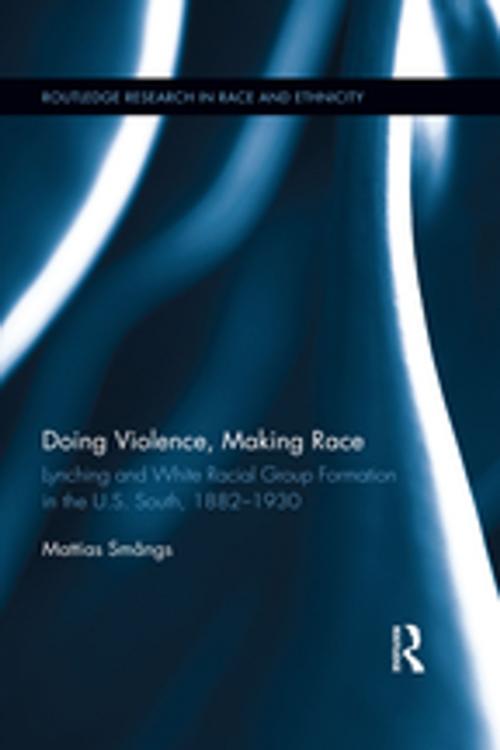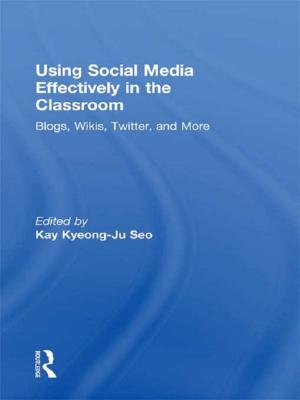Doing Violence, Making Race
Nonfiction, Social & Cultural Studies, Social Science, Cultural Studies, African-American Studies, Sociology| Author: | Mattias Smångs | ISBN: | 9781134832118 |
| Publisher: | Taylor and Francis | Publication: | March 27, 2017 |
| Imprint: | Routledge | Language: | English |
| Author: | Mattias Smångs |
| ISBN: | 9781134832118 |
| Publisher: | Taylor and Francis |
| Publication: | March 27, 2017 |
| Imprint: | Routledge |
| Language: | English |
The subject of lynching has spawned a vast body of important research, but this research suffers from important blind spots and disjunctures.
By broadening the scope of research problem formulation, staking out new theoretical-analytical tracks, and drawing upon recent innovations in statistical methodology to analzye newer and more detailed data, Doing Violence, Making Race offers an innovative contribution to our understanding of this grim subject matter and its place within the broader history and sociology of US race relations. Indeed, this volume demonstrates how different forms of lynching fed off and into the formation of the racial group boundaries and identities at the foundation of the Jim Crow system. The book also demonstrates that as dominant white racial ideologies and conceptions took an extremist turn, lethal mob violence against African Americans increasingly assumed the form of public lynchings, serving to transform symbolic representations of blacks into social stigma and exclusion. Finally, Smångs also explores how public lynchings were expressive as well as generative of the collective white racial identity mobilized through the southern branch of the Democratic Party, whilst private lynchings were related to whites’ interracial status and social identity concerns on the interpersonal level.
The most complete and complex scholarly treatment of this grim subject to date, this enlightening volume will be of interest to undergraduate and graduate students interested in areas such as Sociology, Political Science, History, Criminology/Criminal Justice, Anthropology, American Studies, African-American and Whiteness Studies.
The subject of lynching has spawned a vast body of important research, but this research suffers from important blind spots and disjunctures.
By broadening the scope of research problem formulation, staking out new theoretical-analytical tracks, and drawing upon recent innovations in statistical methodology to analzye newer and more detailed data, Doing Violence, Making Race offers an innovative contribution to our understanding of this grim subject matter and its place within the broader history and sociology of US race relations. Indeed, this volume demonstrates how different forms of lynching fed off and into the formation of the racial group boundaries and identities at the foundation of the Jim Crow system. The book also demonstrates that as dominant white racial ideologies and conceptions took an extremist turn, lethal mob violence against African Americans increasingly assumed the form of public lynchings, serving to transform symbolic representations of blacks into social stigma and exclusion. Finally, Smångs also explores how public lynchings were expressive as well as generative of the collective white racial identity mobilized through the southern branch of the Democratic Party, whilst private lynchings were related to whites’ interracial status and social identity concerns on the interpersonal level.
The most complete and complex scholarly treatment of this grim subject to date, this enlightening volume will be of interest to undergraduate and graduate students interested in areas such as Sociology, Political Science, History, Criminology/Criminal Justice, Anthropology, American Studies, African-American and Whiteness Studies.















